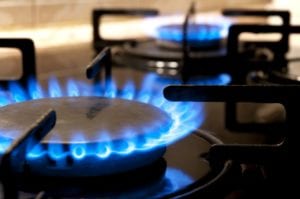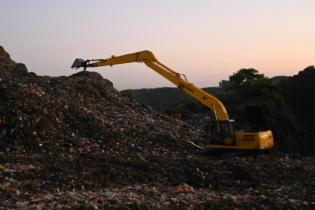
Black gas stove and two burning flames close-up
The company says LPG is hard to beat, easy to use, efficient, cost-competitive and environmentally-friendly.
“Furthermore, from an LPG supplier perspective, the business is also evolving in a dynamic and exciting manner,” said Fred Royer, Easigas managing director.
“In the past, it was enough to ensure timeous and efficient supply of LPG to customers in the domestic, commercial and industrial sectors, however, business trends and requirements have evolved.”
Royer said that if you are selling LPG energy, it is now not only essential to have a thorough understanding of a customer’s requirements, but also understand how the energy you supply them will be utilised.
“This is especially important in these economically demanding times where energy, particularly if its usage is not correctly optimised and managed, can be one of the greatest industrial or manufacturing input costs,” he said.
New initiative
Commercial technical manager at Easigas, Dave De Wit, will be leading an innovative initiative that will benefit the company’s commercial and industrial clients. This additional service is said to serve as a form of diversification.
“While the company will remain a primary LPG supplier, it is diversifying into energy optimisation and management via this expanded service and value-add proposition,” the company said.
De Wit, who has more than 30 years’ experience and understanding of gas-fired plants and equipment, said: “This will take the form of a multi-faceted energy monitoring and management service offering which will also offer assistance to our commercial and industrial customers who need to be aligned with existing gas-related legislation.
He said the new service will also assist in the optimisation of customers’ combustion systems and burner management. “Furthermore, when the time comes to alter plant or install new gas systems, Easigas will offer its customers professional advice on the gas equipment selection and installation,” the company said.
It added that this new offering ties in well with the energy management programmes that many of the company’s commercial and industrial customers currently have in place. These include the industrial or mining sectors which have fully-fledged energy departments managing steam, water and gas usage.
“We could assist them at many energy utilisation levels,” De Wit said, adding that this development may in time also encourage large gas users in sectors such as those in the thermo-processing, power generation and petrochemical industries to migrate some or all their energy usage to gas.
“This service could also be particularly useful to geographically remote branches, which sometimes do not have the full in-house energy management resources as their main operations,” he said.
Statutory compliance
A further component to the energy monitoring and management service would be assisting companies with statutory compliance.
“The enforcement of statutory compliance deadlines, as defined in the Pressure Equipment Regulations (PER), are to be revised due to the prohibitive costs of upgrades required to ensure compliance,” De Wit said.
The Department of Labour will require that companies draw up a risk profile, and then schedule measures to be taken to ensure compliance in a series of manageable and affordable steps.
“This could potentially open up opportunities for industries such as glass manufacturing, steel manufacturing or pyro-metallurgical operations, and many others, to get their houses in order in a manageable progression,” De Wit said. “Obviously, during this entire process of completing compliance, we will ensure that projects of this nature are methodically and safely carried out.”
Energy monitoring
Regarding the energy monitoring component of the service, as well as the need for customers to be legally compliant, Easigas said it could provide a scheduled monitoring capability, regardless of whether it is linked to a statutory requirement or not.
“If, for example, a burner nozzle or register should become inefficient (and ‘gas wasting’), by scheduled monitoring, we will detect this condition early and advise the customer accordingly,” De Wit said.
He said the company will also be able to assist customers with burner equipment selection, optimisation, management and compliance. “With our continuous on-site monitoring frequency, customers would also comply more easily with emissions legislation.”
De Wit touched on the imperatives of the Industry 4.0 trend of increasingly automated and integrated manufacturing. “The drive of the Industry 4.0 global initiative is towards increased efficiency and productivity,” he said. “With our energy monitoring and management value-added service offering, we are able to assist our customers in improving their productivity, profitability and sustainability through optimal energy usage.”








